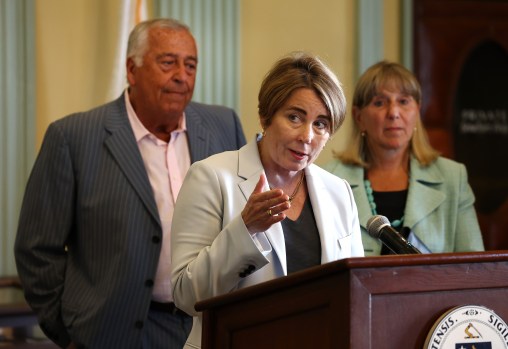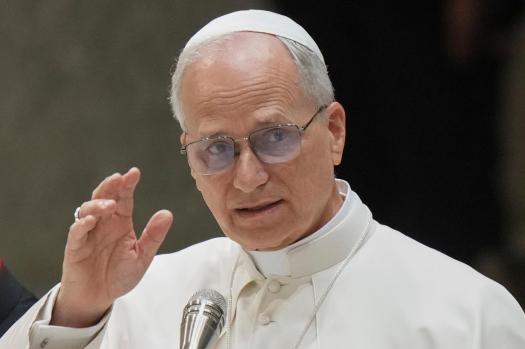The $61 billion budget that Massachusetts lawmakers delivered to Governor Maura Healey on Monday increases the state’s reliance on a surtax on incomes over $1 million and mandates that the party hiring residential brokers pay for their services.
With the votes to move the budget forward, lawmakers delivered a spending plan to the governor ahead of the new fiscal year for the first time since 2016. But because Healey has ten days to consider the idea, Massachusetts will still begin fiscal 2026 without a budget.
Democrats’ $61 billion budget agreement, which was unveiled over the weekend, increases overall spending by $3.3 billion over the previous fiscal year. This gain surpasses inflation and comes as budget writers are battling uncertainty brought on by funding cuts prompted by President Donald Trump.
However, the budget reduces expenditure by around $500 million from the versions presented by the House and Senate earlier this year, and by $1 billion from the fiscal year 2026 proposal Healey unveiled in January.
Doug Howgate, president of the Massachusetts Taxpayers Foundation, said that Democrats’ commitment to cut spending is a start in the right direction.
To ensure that they are comfortable as the fiscal year begins and that we have a spending plan in place that accounts for at least some of the things we know we’re going to have to address and buys us some room for things we don’t know, Howgate told the Herald, “I think the Healey administration should reduce further even though I think the bottom line is a positive step.”
On Monday, when Congress was discussing Trump’s contentious large bill of tax cuts and spending cuts, Beacon Hill Democrats advanced the budget accord through both houses. The Massachusetts state budget may be significantly impacted by the federal proposal.
For the first time since they took final votes on the fiscal year 2017 budget in 2016, Beacon Hill Democrats were able to send a budget to the governor before the July 1 start of the new year. Since 2010, the state of Massachusetts has not begun a new fiscal year with a spending plan in place.
Compared to prior years, there are fewer significant policy ideas in the compromise spending plan that local politicians hammered out for the fiscal year that begins Tuesday.
In order to prevent fee arrangements negotiated between brokers and landlords from being passed on to tenants, Massachusetts Democrats did send Healey text requiring that the party contacting the broker pay any real estate broker fees.
The proposal, which would remove Massachusetts as the only state where renters must pay a broker charge when renting an apartment, was applauded by housing advocates.
The legislation is a long-overdue victory for tenants, particularly those who move frequently, according to Carolyn Chou, the head of the housing advocacy nonprofit Homes for All Mass.
almost the course of the next ten years, a person who moves three or four times could save almost $10,000 in moving expenses because to this legislation. According to a statement from Chou, it’s a sensible move to make sure that tenants aren’t compelled to pay exorbitant fees to rent an apartment and to lessen the high expense of relocating.
In the state budget, Massachusetts lawmakers also relied more heavily on a 4% surtax on incomes over $1 million. In order to fund new initiatives in the fields of education and transportation, Democrats have frequently turned to the billions of dollars generated by the voter-approved surtax.
In the compromise they unveiled over the weekend, the House and Senate budget writers raised the initial $1.95 billion maximum on surtax expenditure in the fiscal year 2026 operating budget to $2.4 billion.
According to Howgate, the rise in surtax expenditures is probably a result of the intense surtax inquiries that have been raised in fiscal year 2025.
According to him, it might be a dangerous move to increase our reliance on the surtax at a time when economic uncertainty is at its highest. We might be a bit overextended in that area, and the more money we spend on operating expenses from the surtax, the less money we have left over for infrastructure improvements.
The budget, according to Paul Craney, a spokesman for the conservative Massachusetts Fiscal Alliance, is mostly dependent on one-time revenue streams and a complete repeal of the high-earner surtax, which was first presented to voters as money specifically allocated for transportation and education.
Beacon Hill is once more abusing the income surtax as a slush fund for their own purposes, with no answer to the people who were promised outcomes. In a statement, Craney added, “They’re using every tactic in the book to keep expanding government while avoiding the difficult decisions.”
The governor has more than a week to approve any proposal that is submitted to her desk, so even though Democrats were able to provide Healey a budget before the new fiscal year began, Massachusetts is still likely to begin fiscal 2026 without a complete spending plan in place.
A $7.5 billion interim budget, which covers state expenditure until the end of July, was also being sent to Healey by the House and Senate on Monday. While the state is working on interim spending plans, new programs and additions to existing projects cannot be implemented.
However, Howgate of the Massachusetts Taxpayers Foundation stated that he would not expect any significant disruption because the actual budget will be signed a few days after July 1.












